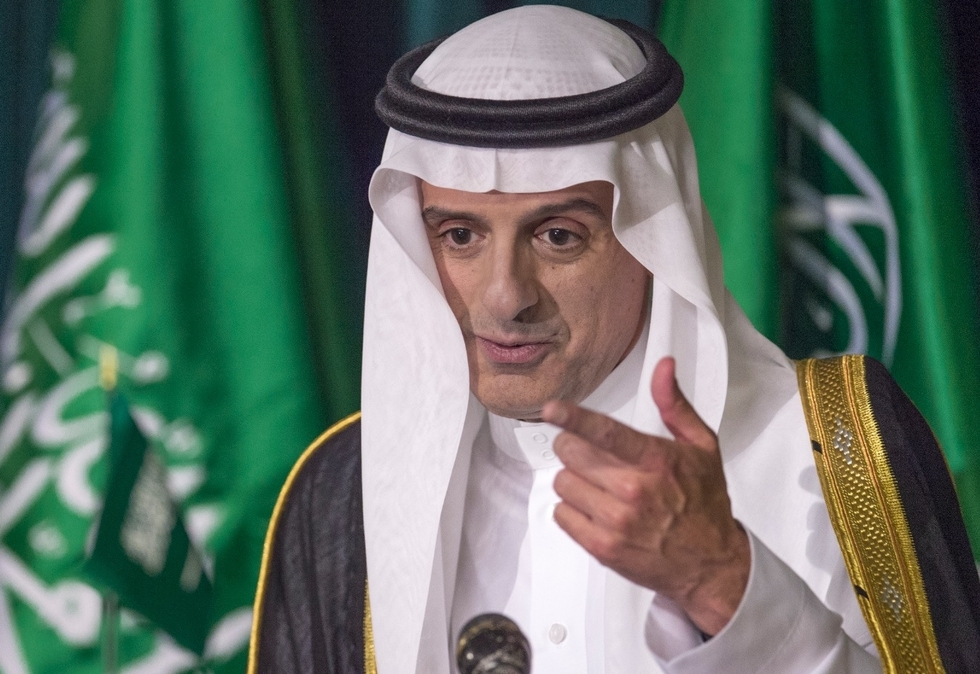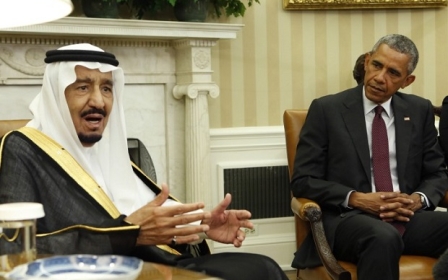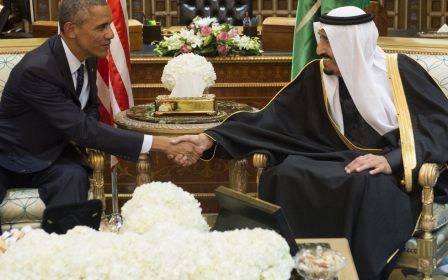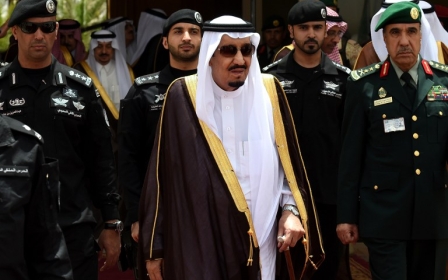Saudi Arabia accepts US assurances on Iran nuclear deal

Saudi Arabia's Foreign Minister Adel al-Jubeir said that Riyadh had accepted assurances given by US President Barack Obama that the nuclear deal between world powers and Iran would prevent Tehran from developing a nuclear weapon.
"The Kingdom of Saudi Arabia is satisfied with these assurances after having spent the last two months consulting with its allies in Europe and other places," Jubeir said.
"We believe this agreement will contribute to security and stability in the region by preventing Iran from acquiring a nuclear capability," he added.
Jubeir's announcement came following a long delayed meeting between Obama and Saudi Arabia's King Salman in the White House on Friday.
"Now we have one less problem for the time being to deal with, with regards to Iran. We can now focus more intensely on the nefarious activities that Iran is engaged in in the region," Jubeir said.
"We hope that the Iranians will take advantage of this agreement, which allows for a removal gradually of their isolation," he added.
Salman's inaugural visit as king -- originally scheduled for May and cancelled by Riyadh -- had been billed as a way of putting relations back on a more stable footing.
In the Oval Office, Obama was effusive, saying he wanted to "once again reaffirm not only our personal friendship, but the deep and abiding friendship between our two people."
For his part Salman said his visit was a "symbol of the deep and strong relationship that we have with the United States."
After the meeting, the allies released a joint statement, published by the White House and later read out at a news conference by Jubeir.
In it, they outlined their joint determination to defeat the Islamic State militants.
Deep disagreements over Syria and Yemen
But behind the warm public statements, there are disagreements on Syria and Yemen, and Obama acknowledged only that the two sides had much to discuss.
"This is obviously a challenging time in world affairs, particularly in the Middle East," Obama said, adding that the pair would discuss a "wide range of issues."
Obama said the two sides "share concerns" about the need to restore a functioning government in Yemen and relieve an urgent humanitarian crisis.
Saudi Arabia began a bombing campaign in Yemen to oust Iranian-backed militia soon after Salman and his son and defense minister, Deputy Crown Prince Muhammad, came to power.
The United States has supported that effort, but has repeatedly warned about the impact the fighting has had on civilians.
The UN has estimated that around six million people in Yemen face possible starvation and 850,000 children face acute malnutrition.
The White House and Jubeir said King Salman had committed to "work toward opening Red Sea ports" that would bring vital supplies, so long as the operation is monitored by the United Nations.
Jubeir said Saudi Arabia fears the ports could be used by Iran or others to bring weapons to Houthi militia, and emphasised that the kingdom had provided tens of millions of dollars in aid.
And the minister said Saudi Arabia was in "intense" talks with Russia, the United States and Syrian opposition groups about a political accord to end the violence in Syria.
"The two leaders reiterated that any meaningful political transition would have to include the departure of Bashar Al-Assad who has lost legitimacy to lead Syria," the joint statement said.
But Saudi Arabia's backing for opposition groups like Jaysh al-Islam has concerned the White House.
Riyadh views Sunni fighters as a counterbalance to the Iranian-backed Shia militias helping prop up Bashar al-Assad.
"The kingdom sees the conflict against the Iranian-supported Assad regime as an extension of the wider Persian-Arab rivalry," said Simon Henderson of the Washington Institute for Near East Policy.
Ahead of the meeting, senior Obama foreign policy aide Ben Rhodes said the White House wants to make sure both countries have a common view on which Syrian opposition groups get support.
"We are looking to isolate more extremist elements of the opposition, that's been an ongoing conversation with Saudi Arabia," he said.
New MEE newsletter: Jerusalem Dispatch
Sign up to get the latest insights and analysis on Israel-Palestine, alongside Turkey Unpacked and other MEE newsletters
Middle East Eye delivers independent and unrivalled coverage and analysis of the Middle East, North Africa and beyond. To learn more about republishing this content and the associated fees, please fill out this form. More about MEE can be found here.




